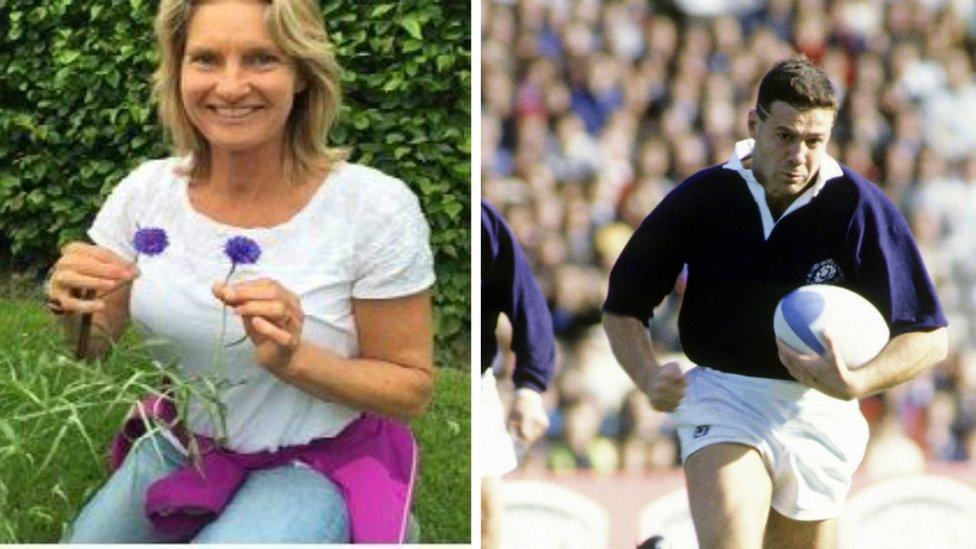Rugby star Scott Hastings speaks of guilt over friend's cancer death
- Published
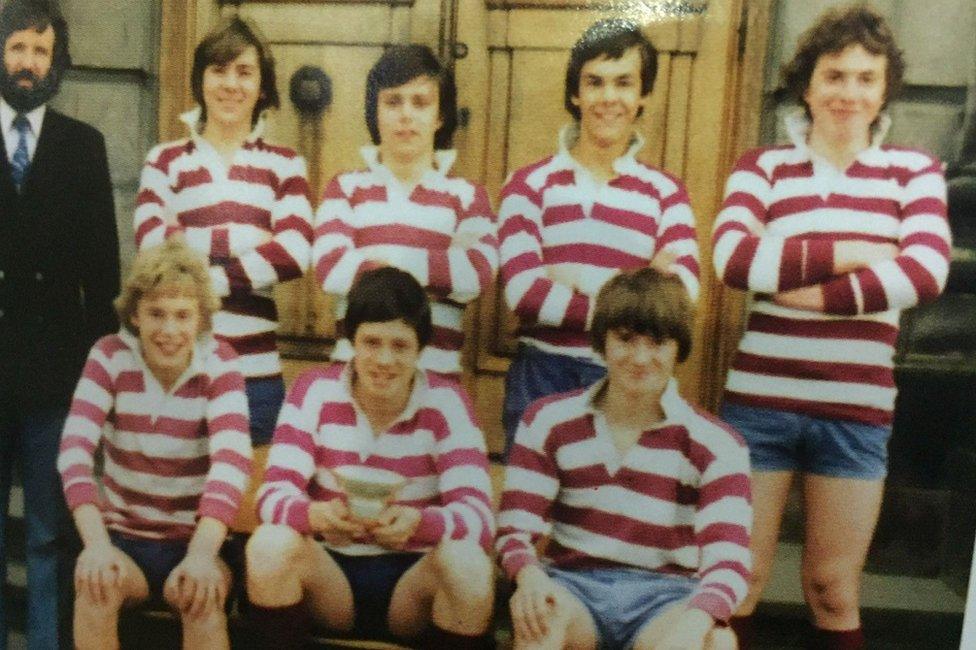
The Watsons under-16 Sevens team in 1978, with Scott Hastings (front centre) and Clive Millar (back right)
Scottish rugby hero Scott Hastings had been on a "cancer journey" with one of his childhood friends in the years since they were diagnosed.
Now he has spoken of his guilt he feels over the death of fellow rugby player and school friend Clive Millar, while his own cancer is now in remission.
Former British and Irish Lions player Scott, 57, has received chemotherapy for non-Hodgkin's lymphoma.
But Clive, who had liver cancer, died earlier this month.
The pair had been friends since they met at the age of five while attending George Watson's College school in Edinburgh.
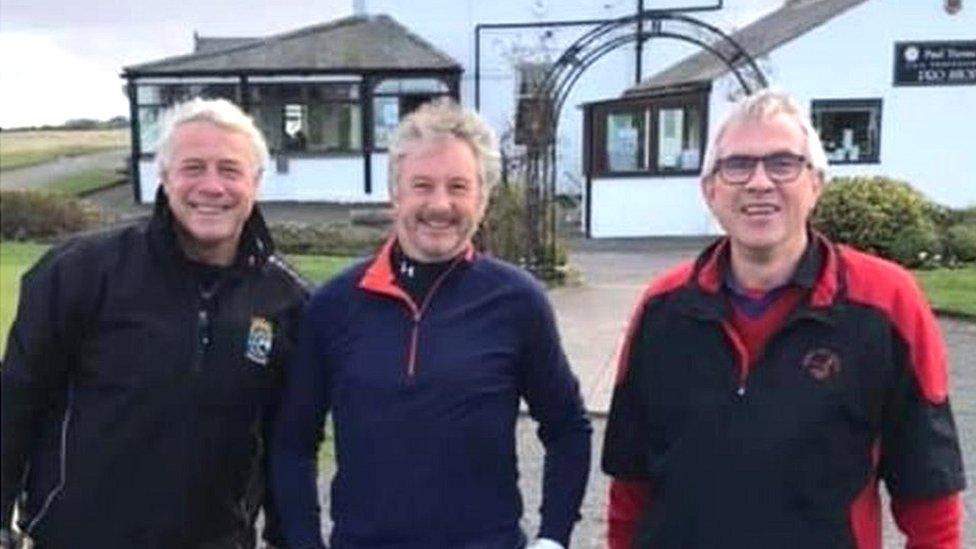
Scott Hastings (left) with Clive Millar (right) and their friend John Walbaum during a day on the golf course in Goswick 2021
They played rugby together at school and stayed friends, meeting up to play golf and to go to family barbeques.
Clive was diagnosed with cancer several years ago. It started in his eye, then travelled down a lymph node to his liver.
He did not receive a terminal diagnosis until just a month before he passed away.
"We were at a barbeque in the summer and nobody would have known that we both had cancer. He looked great," said Scott.
"It was frightening how quickly he deteriorated.
"We helped each other on our cancer journeys and unfortunately he lost his battle. I'm very upset about it. We were very close."
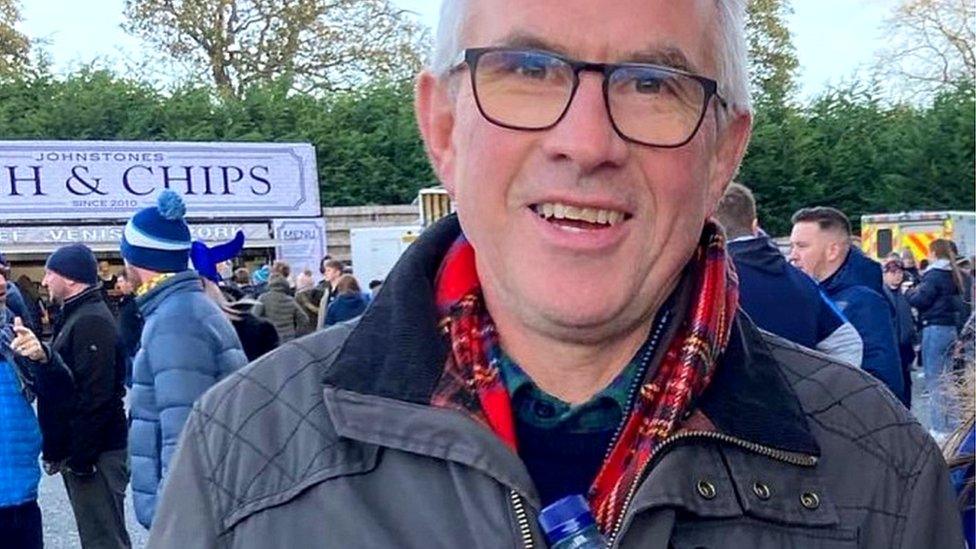
Clive Millar played for Watsonian Rugby FC
Scott said Clive had "many good pals and many visitors" - but admitted that it was "difficult to get my head around" his friend's death.
"It's a very sad situation," he added.
"I miss being around him and feel guilty that he's not here and I am."
A father-of-three, Clive was a farmer in the Scottish Borders. During his rugby career he played for Watsonians and captained Kelso.
Scott, the younger brother of former Scotland rugby captain Gavin, played at centre for Scotland from 1986 to 1997.
He was the most-capped Scotland player at the time he retired from the sport, and now regularly works as a pundit and co-commentator on TV.
Scott was diagnosed with cancer five years ago, although he kept it quiet after being told it was treatable and that he would only require radiotherapy.
It was not until earlier this year, when his treatment had to be stepped up a gear and he needed chemotherapy, that he started to speak about it outwith his immediate family.
He told BBC Scotland: "I had been told that my cancer was treatable five years ago, so I didn't want to make a big deal of it.
"I suppose I was quite matter of fact - I wanted to have my treatment and get on with my life."
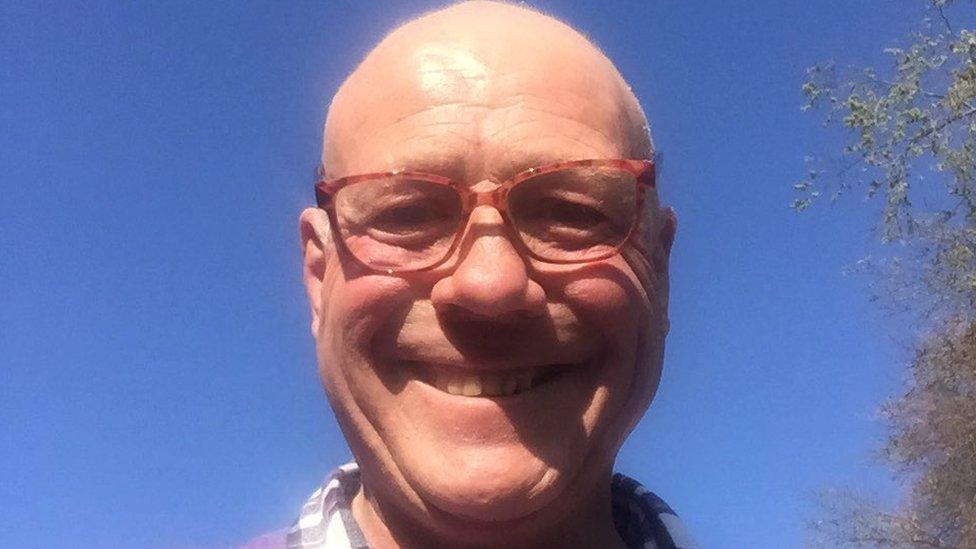
Scott Hastings said he could not hide his cancer when chemotherapy made him as "bald as a coot"
He said it had been hard for his family - wife Jenny, son Corey and daughter Kerry-Anne - to get their heads around.
"I looked OK, and I didn't want to speak about it at all," he said.
"It was all a bit of a family secret - and it wasn't until this year, when I needed to have chemotherapy and my hair started to fall out, that I realised I would have to talk about it."
Although Scott will not be able to get rid of his cancer, he can live with it by taking medication.
He has started going to Maggie's cancer care charity for counselling with his family.
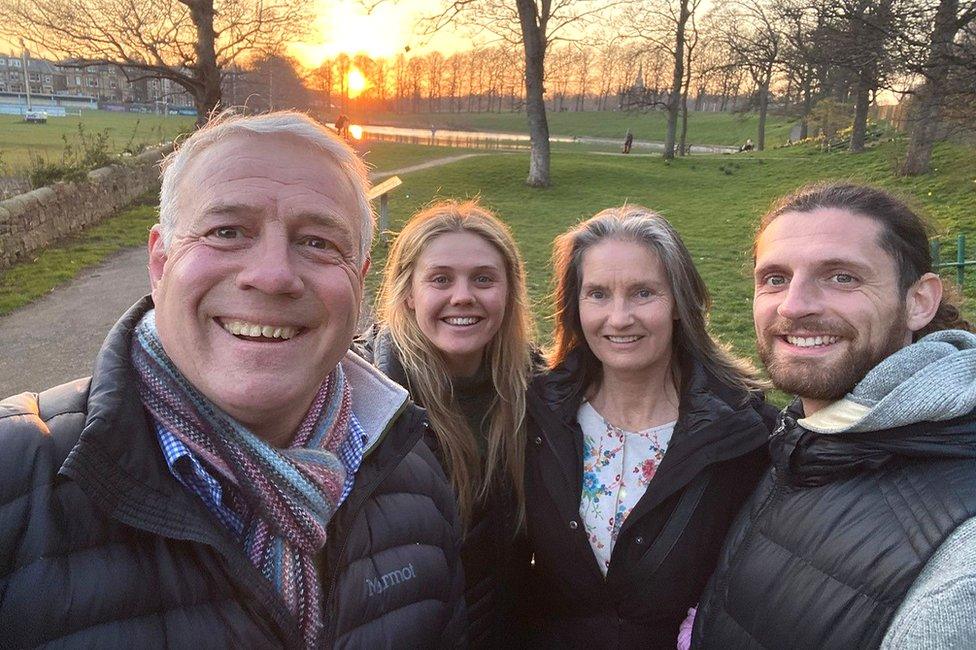
Scott Hastings went to the Maggies cancer care centre in Edinburgh with his wife and children
"It gave me and Jenny, Corey and Kerry-Anne the space and, I suppose we felt, the permission to freely talk about cancer for the first time.
"I realised that every member of my family had their own thoughts and feelings about what I was going through.
"The great thing about Maggie's is that it takes the stigma out of talking about cancer and that was a big thing for me."
He added that he wished there was a similar facility where people could break down the stigma of talking about mental health issues.
Dame Laura Lee, CEO of Maggie's, said: "It's really common for people to have feelings of guilt if they have been told they are in remission when they have friends or others around them, who have perhaps not had such good news.
"At Maggie's, we don't think any emotion is the 'wrong' one but we try to help put things in perspective, to see that these emotions are normal and we can work through them.
"Cancer brings with it a myriad of different emotions and we are there to support people with cancer through all of them."
- Published9 May 2022
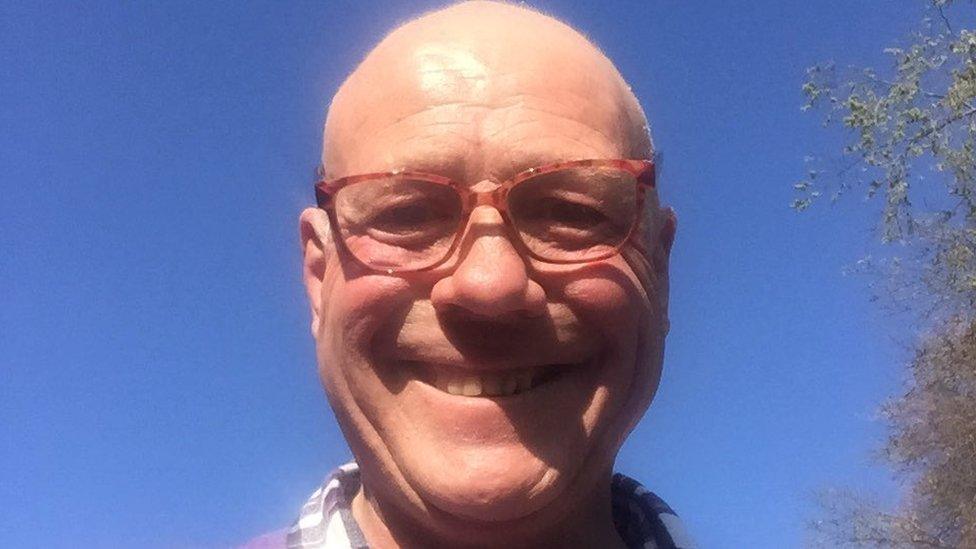
- Published29 March 2017
